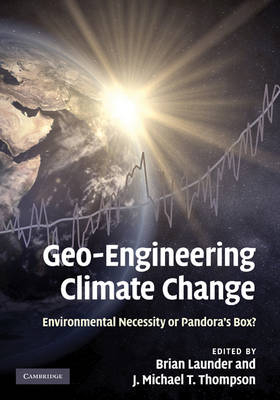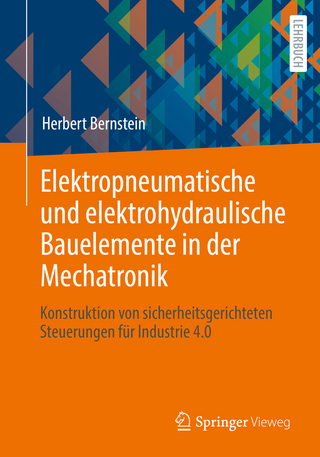
Geo-Engineering Climate Change
Cambridge University Press (Verlag)
978-0-521-19803-5 (ISBN)
This book is the first to present a detailed and critical appraisal of the geo-scale engineering interventions that have been proposed as potential measures to counter the devastation of run-away global warming. Early chapters set the scene with a discussion of projections of future CO2 emissions and techniques for predicting climate tipping points. Subsequent chapters then review proposals to limit CO2 concentrations through improved energy technologies, removal of CO2 from the atmosphere, and stimulated uptake by the oceans. Schemes for solar radiation management involving the reflection of sunlight back into space and using artificially brightened clouds and stratospheric aerosols are also assessed. Pros and cons of the various schemes are thoroughly examined – throwing light on the passionate public debate about their safety. Written by a group of the world's leading authorities on the subject, this comprehensive reference is essential reading for researchers and government policy makers at Copenhagen and beyond.
Brian Launder graduated in Mechanical Engineering from Imperial College in 1958 and obtained masters and doctoral degrees from the Massachusetts Institute of Technology for research in gas turbines. He re-joined his former department at Imperial as a lecturer and was promoted to Reader in Fluid Mechanics in 1971. In 1976 he began a four-year spell as professor at the University of California before accepting the position as head of the thermo-fluids division at UMIST. He was admitted as a Fellow of the Royal Society and of the Royal Academy of Engineering in 1994. Thereafter he chaired the Institute's Environmental Strategy Group, while from 2000–2006 he served as regional director of the Tyndall Centre for Climate-Change Research and currently sits on the Royal Society's geoengineering panel. Professor Launder has received honorary doctorates from three European universities and numerous prizes in recognition of his research contributions. Michael Thompson graduated from the University of Cambridge with first class honours in mechanical sciences in 1958. Further degrees include ScD (Cambridge) and honorary DSc (University of Aberdeen). He spent a year as a Fulbright researcher in aeronautics and astronautics at Stanford before joining University College London (UCL) in 1964. He was appointed a professor in 1977, and subsequently Director of the Centre for Nonlinear Dynamics. Professor Thompson was elected a Fellow of the Royal Society in 1985 and has served on the Council of the Society. He has been honoured with the OMAE Award (American Society of Mechanical Engineers, 1985), the Alfred Ewing Medal (Institution of Civil Engineers, 1992), and a Gold Medal for lifetime contributions to mathematics (IMA, 2004). He is currently Emeritus Professor at UCL, Honorary Fellow at DAMTP in Cambridge, and sixth century Professor (part-time) in Theoretical and Applied Dynamics at Aberdeen.
Preface Brian Launder and J. Michael T. Thompson; Part I. Scene Setting: 1. Geo-engineering: could we or should we make it work? Stephen H. Schneider; 2. Reframing the climate change challenge in light of post-2000 emission trends Kevin Anderson and Alice Bows; 3. Predicting climate tipping points J. Michael T. Thompson and Jan Sieber; 4. A geo-physiologist's thoughts on geo-engineering James Lovelock; 5. Coping with carbon: a near term strategy to limit carbon dioxide emissions from power stations Paul Breeze; Part II. Carbon Dioxide Reduction: 6. Capturing CO2 from the atmosphere David W. Keith, Kenton Heidel and Robert Cherry; 7. Carbon neutral hydrocarbons Frank S. Zeman and David W. Keith; 8. Ocean fertilisation: a potential means of geo-engineering? R. S. Lampitt, E. P. Achterberg, T. R. Anderson, J. A. Hughes, M. D. Iglesias-Rodriguez, B. A. Kelly-Gerreyn, M. Lucas, E. E. Popova, R. Sanders, J. G. Shepherd, D. Smythe-Wright and A. Yool; 9. The next generation of iron fertilisation experiments in the Southern Ocean V. Smetacek, and S. W. A. Naqvi; Part III. Solar Radiation Management: 10. Global temperature stabilization via controlled albedo enhancement of low-level maritime clouds John Latham, Philip J. Rasch, Chih-Chieh (Jack) Chen, Laura Kettles, Alan Gadian, Andrew Gettleman, Hugh Morrison, Keith Bower and Tom Choularton; 11. Sea-going hardware for the cloud albedo method of reversing global warming Stephen Salter, Graham Sortino and John Latham; 12. An overview of geo-engineering of climate using stratospheric sulfate aerosols Philip J. Rasch, Simone Tilmes, Richard P. Turco, Alan Robock, Luke Oman, Chih-Chieh (Jack) Chen, Georgiy L. Stenchikov and Rolando R. Garcia; 13. Global and Arctic climate engineering: numerical model studies Ken Caldeira and Lowell Wood; Index.
| Erscheint lt. Verlag | 10.12.2009 |
|---|---|
| Zusatzinfo | 30 Tables, unspecified; 25 Halftones, unspecified; 35 Line drawings, unspecified |
| Verlagsort | Cambridge |
| Sprache | englisch |
| Maße | 180 x 254 mm |
| Gewicht | 840 g |
| Themenwelt | Naturwissenschaften ► Geowissenschaften ► Meteorologie / Klimatologie |
| Technik ► Umwelttechnik / Biotechnologie | |
| ISBN-10 | 0-521-19803-8 / 0521198038 |
| ISBN-13 | 978-0-521-19803-5 / 9780521198035 |
| Zustand | Neuware |
| Haben Sie eine Frage zum Produkt? |
aus dem Bereich


